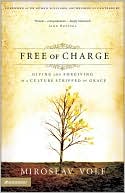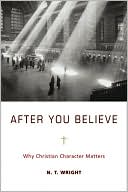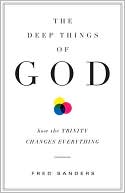Acts 7 (Click to read)
I would guess that for most people today understanding the point of Stephen’s sermon is a bit difficult time . Why is he rehearsing this long stretch of historical facts that his audience had probably heard since they were children? The reason we don’t get it is because today history is at best some interesting stories that might provide some good or bad examples for us to emulate or not emulate. That wasn’t the case for Stephen and the early church. History, and especially the inspired interpretation of history (i.e. biblical history), was seen not as historical facts and examples. Rather, these early Christians, and Jews for that matter, saw history as providing a story that gave the proper framework to understand all the world, past, present, and future. They looked back to understand what was happening now. This is a huge divide between the way they understood life and the way modern people do. When they encountered life, they didn’t look inside themselves to find answers. They looked to history to find answers.
Stephen, then, is looking to the past to interpret his present circumstances. He rehearses Israelite history, but he comes to very different conclusions than those of his hearers. Israel, at this time, reveled in their privileged position as God’s chosen people and of their descent from the great Abraham. However, Stephen points to another very clear fact in their history. Regardless of God’s gracious election of them, they have always rejected God. They rejected Moses and the oracles that came through him. They rejected God after His miraculous and awe-inspiring deliverance of Israel from Egypt. They rejected God when they entered into the promised land. They rejected all the prophets that foretold of the coming of the “Righteous One.” So, says Stephen, it is not surprising that when the Righteous One comes, they reject him. Their current behavior accords perfectly with history. Israel is God’s elected people, but they are also the same wicked, stiff-necked elected people.
But perhaps the most amazing part of Stephen’s sermon is that he combines a demand for repentance with a humble and compassionate heart. Stephen confronts them boldly and clearly about the seriousness of their sin. He tells them not only that they are wrong, but that they are in perverse rebellion against the God they claim to worship. Today, we are told that such talk is arrogant, narrow, and even hateful. Yet the same Stephen who shouts condemnation also prays, “Lord, do not hold this sin against them.” Compassion and hard truth are not at odds in Stephen’s heart. In fact, they work in perfect harmony. He confronts because he sees the massive rebellion of their ways, and the condemnation that awaits them unless they repent.
Here are two excellent principles for the church today. If we want to spread the glory of Christ in this world, we need to learn the full story of the gospel, and we need to proclaim clearly as truth with compassion flooding our hearts. We need to look into the story line of the Bible to interpret our lives and our world, and not to contemporary culture or to our own hearts. Then we need to bring this biblical interpretation of the world to the ears of our neighbors. We must be uncompromising, but we must also burn with compassion for them. We need Stephens. May God bless his church with multitudes of them.
Subscribe to:
Post Comments (Atom)









No comments:
Post a Comment